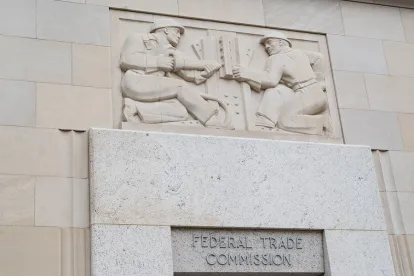On Wednesday, an FTC Commissioner used the occasion of a routine report to Congress to send a warning shot to private equity firms, especially those rolling up health care providers. Commissioner Rohit Chopra, an advisor to Senator Elizabeth Warren before he joined the Commission in May 2018, released this statement focusing particular scrutiny on private equity (PE) firms and the practice of acquiring physician groups, especially emergency medicine, anesthesiology, and other services that generate “surprise” out of network charges for otherwise insured patients.
Commissioner Chopra’s statement scrutinized the practice of PE roll-ups, a strategy where a private equity firm acquires multiple companies in a particular market sector, which can ultimately lead to the firm controlling market power, thereby reducing competition. These types of transactions present a risk of flying under the radar because each individual transaction may not be reportable under the HSR Act.1 Therefore, the private equity firm may slowly over time increase its market share in a particular market while never attracting the FTC or DOJ’s attention until the acquired firms are integrated into the PE company and an antitrust remedy becomes difficult. Of course, completing a transaction under the reporting threshold does not exempt a deal from post-closing antitrust enforcement, and Commissioner Chopra would advocate for greater post-closing scrutiny of such transactions. While the topic of PE roll-ups, generally, are of concern to Commissioner Chopra, he discussed particular concern relating to the health care sector. Chopra noted that the median deal size of leveraged buyouts by private equity firms in the health care sector is estimated to be between $60-$70 (below HSR reporting thresholds), but may ultimately lead to outsized market power. Commissioner Chopra warned of the collateral consequences of PE roll-ups in the health care sector, including the practice of “body brokering” in the treatment of opioid dependency, where treatment centers provide financial incentives to intermediaries who find patients in “sober homes,” and earn kickbacks by steering those patients to treatment centers at great cost to their insurers. Ultimately, Chopra called on the FTC to halt acquisition strategies resulting in higher costs to consumers and reduction in quality of care, and urged the Commission to more aggressively utilize its power under Section 6(b) of the FTC Act to study consummated transactions.
Commissioner Chopra’s statement was a continuation of his long-held scrutiny of private equity roll-ups, having previously issued a 2018 letter to Congress regarding roll-ups in the opioid treatment sector. As M&A activity continues, and particularly in the health care sector where hospitals are facing financial strain from COVID-19, parties must be aware of the risks of undertaking a roll-up strategy involving multiple non-HSR-reportable transactions. Parties must ensure such acquisition strategies properly weigh antitrust enforcement risks, including the potential for an uptick in consummated merger challenges.
1 Under the HSR Act, parties must notify the FTC and DOJ for transactions in excess of $94 million. Transactions under this $94 million threshold do not require a pre-closing notification to the agencies.






 />i
/>i
